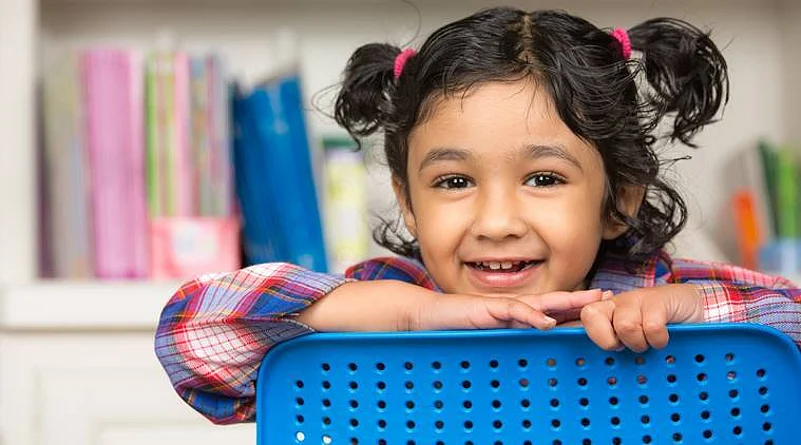Almost all Indian citizens when asked will agree that education is vital for all. Even those parents who may have been uneducated due to difficulties often strive and sacrifice a lot to educate their children. Education seems to hold a promise to better life for many. Indeed, education is one of our fundamental rights helping us navigate the challenges or everyday situations in life with accrued wisdom or wealth collected due to investment in our education. However just sending kids to school may not be enough- we must ensure that the child is nurtured and nourished, treated well at home and in his/her surroundings, is safe from any abuse, gets an opportunity to play, learn and be active etc.
James Heckman, a Nobel Laureate in Economics had rightly shared that each additional dollar invested in quality early childhood programs yields a return of between $6 dollars and $17 dollars. Unfortunately, more than 250 million children (43%) younger than 5 years in low- and middle-income countries like India continue to be at risk of not achieving their developmental potential, due to risk factors of extreme poverty and stunting alone. Out of the 240 million children in India aged between 0-8 years, 3 quarters ie 178 million live in rural areas. Millions of these children in both urban slums and rural pockets are at risk of not reaching their full potential because of inadequate nutrition, a lack of early stimulation, learning, and nurturing care, and exposure to stress.
Science shows that malnutrition in early life, often manifested in form of stunting, is associated with adverse consequences in later life for morbidity and mortality, non-communicable diseases, learning capacity and productivity. Nurturing care is especially important for children in the early years, from pregnancy to age 3. This period of rapid physical and psychological development is when the foundations for later health and well-being are laid. The WHO’s Nurturing care framework is a valuable reminder of the importance of nurturing care comprising caregiver and family practices in health, nutrition, safety and security, responsive caregiving, and early learning opportunities that support children’s healthy development. Robust evidence now confirms that nutrition interventions do not have an impact on early childhood development when implemented alone, but are associated with improved childhood development when combined with support for responsive caregiving and opportunities for early learning.
Every student has the potential to do well in school. Failing to provide good nutrition and nurturing care in early years puts them at risk for missing out on meeting that potential. Several studies show that nutritional status can directly affect mental capacity among school-aged children. For example, iron deficiency, even in early stages, can decrease dopamine transmission, thus negatively impacting cognition. Deficiencies in other vitamins and minerals, specifically thiamine, vitamin E, vitamin B, iodine, and zinc, are shown to inhibit cognitive abilities and mental concentration. Additionally, amino acid and carbohydrate supplementation can improve perception, intuition, and reasoning. There are also a number of studies showing that improvements in nutrient intake can influence the cognitive ability and intelligence levels of school-aged children.
By 2026 India’s average age would be 29 years which is least among the global average. However, the benefits of this age structure are unlikely to come to bear in the face of the extreme levels of chronic malnourishment and poor learning opportunities widespread across our kids in India today. Thus if India is to reap its demographic dividend, it is crucial we course-correct especially when it comes to walking the talk on co-benefits of nutrition and stimulation via opportunities to learn, play and access education. We talk about concerted approaches to make childhood a better time, a better experience for our young ones so that they can grow up to realise their full potentials without any learning barriers. Early childhood care and development along with nutrition will provide a robust base/foundation to children to turn in to productive adults and live a healthy life. Nation must make all efforts to strengthen this association as this directly benefits them by reducing pressure/strain on social safety nets, govt provided healthcare costs.
Enabling young children to achieve their full developmental potential is a human right and an essential requisite for sustainable development. Given the critical importance of enabling children to make the best start in life, we all have an important role and responsibility to support nurturing care for childhood development. Learning never stops and should never stop is what is said often to motivate people. Taking action today to provide healthier choices in our home and community surroundings as well as schools can help to set Indian children up for a successful future full of possibilities. This Poshan Maah, let us pledge to prioritize our children’s holistic wellbeing using every platform and program to push for better healthier diverse nutritious diets combined with early childhood development and education opportunities.

























